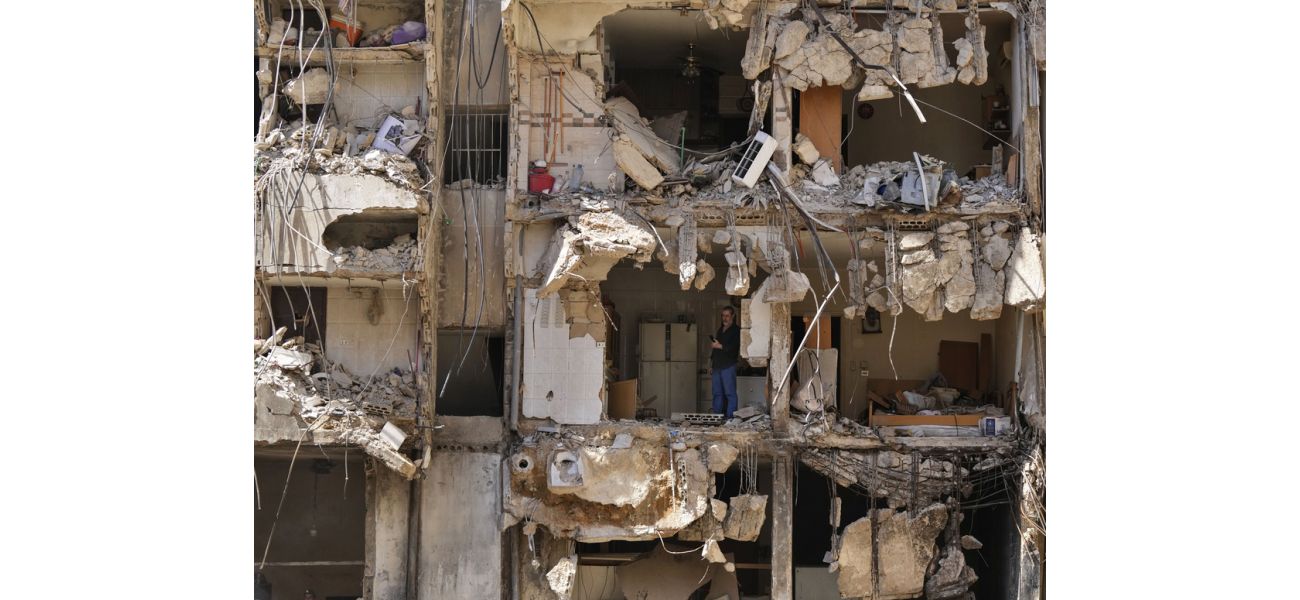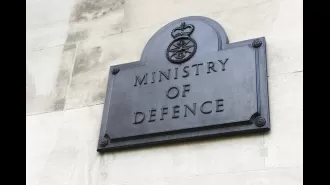The Israeli-Hezbollah conflict is difficult to classify or forecast - is it a war?
Israel and Hezbollah are attacking each other, but the situation has not been officially declared as a war.
September 23rd 2024.

The situation in the Middle East is tense as Israel and Hezbollah engage in a series of attacks and counterattacks. The Israeli military has been bombing targets in Lebanon, including key militants in the capital of Beirut. Their tactics have become increasingly sophisticated, with reports of bombs being hidden in everyday devices such as pagers and walkie-talkies.
On the other side, Hezbollah has been launching rockets and drones deep into northern Israel, causing widespread destruction. But despite the heavy fighting, neither side is officially calling it a war – at least not yet.
Israeli officials have stated that they do not wish to engage in a full-scale war with Hezbollah. They believe that if the militant group stops their attacks and backs away from the border, the conflict can be avoided. Similarly, Hezbollah claims that they do not want a war, but are prepared for one if necessary. They have vowed to continue their strikes on Israel until a ceasefire is achieved in Gaza.
The tension between Israel and Hezbollah has been ongoing since last year, but it reached a new level on Monday when Israeli airstrikes killed over 270 people, according to Lebanese officials. This makes it the deadliest day in Lebanon since the two sides last went to war in 2006.
Military analysts like Andreas Krieg from King's College London are surprised that the conflict has not been declared a war yet. He believes that if a similar situation had occurred in 2023, it would have been considered an all-out war.
But what exactly constitutes a war? According to Merriam-Webster, it is a state of armed conflict between nations. However, in the modern world, wars can involve a variety of actors, from states to extremist groups. This makes it difficult to define and classify conflicts.
Despite this ambiguity, both Israel and Hezbollah are hesitant to use the term "war". They hope to achieve their objectives without being seen as the aggressor or instigator of a major conflict. Lina Khatib, a Middle East expert, believes that both sides are using limited means to pressure each other.
Israeli Prime Minister Benjamin Netanyahu has vowed to do whatever it takes to stop the attacks and allow displaced Israelis to return to their homes. Some see this as an attempt to push Hezbollah into a corner and provoke an overreaction that could lead to an all-out war.
Experts have long feared that a future war between Israel and Hezbollah would be much worse than the one in 2006. Both sides have significantly increased their military capabilities, and their threats have created a state of mutual deterrence. However, with the recent escalation, the possibility of a full-scale war is looming.
If Israel were to send ground troops into southern Lebanon, it would mark a significant escalation and likely be considered a war. However, this does not always happen, as seen in the conflict in Gaza last year. It is possible that a limited ground incursion could still leave room for both sides to back down.
Despite the ongoing tension and conflict, Israel and Lebanon have technically been at war since 1948. As the situation continues to escalate, many are wondering if this will eventually lead to a full-scale war, or if a resolution can be achieved before it's too late. Only time will tell.
On the other side, Hezbollah has been launching rockets and drones deep into northern Israel, causing widespread destruction. But despite the heavy fighting, neither side is officially calling it a war – at least not yet.
Israeli officials have stated that they do not wish to engage in a full-scale war with Hezbollah. They believe that if the militant group stops their attacks and backs away from the border, the conflict can be avoided. Similarly, Hezbollah claims that they do not want a war, but are prepared for one if necessary. They have vowed to continue their strikes on Israel until a ceasefire is achieved in Gaza.
The tension between Israel and Hezbollah has been ongoing since last year, but it reached a new level on Monday when Israeli airstrikes killed over 270 people, according to Lebanese officials. This makes it the deadliest day in Lebanon since the two sides last went to war in 2006.
Military analysts like Andreas Krieg from King's College London are surprised that the conflict has not been declared a war yet. He believes that if a similar situation had occurred in 2023, it would have been considered an all-out war.
But what exactly constitutes a war? According to Merriam-Webster, it is a state of armed conflict between nations. However, in the modern world, wars can involve a variety of actors, from states to extremist groups. This makes it difficult to define and classify conflicts.
Despite this ambiguity, both Israel and Hezbollah are hesitant to use the term "war". They hope to achieve their objectives without being seen as the aggressor or instigator of a major conflict. Lina Khatib, a Middle East expert, believes that both sides are using limited means to pressure each other.
Israeli Prime Minister Benjamin Netanyahu has vowed to do whatever it takes to stop the attacks and allow displaced Israelis to return to their homes. Some see this as an attempt to push Hezbollah into a corner and provoke an overreaction that could lead to an all-out war.
Experts have long feared that a future war between Israel and Hezbollah would be much worse than the one in 2006. Both sides have significantly increased their military capabilities, and their threats have created a state of mutual deterrence. However, with the recent escalation, the possibility of a full-scale war is looming.
If Israel were to send ground troops into southern Lebanon, it would mark a significant escalation and likely be considered a war. However, this does not always happen, as seen in the conflict in Gaza last year. It is possible that a limited ground incursion could still leave room for both sides to back down.
Despite the ongoing tension and conflict, Israel and Lebanon have technically been at war since 1948. As the situation continues to escalate, many are wondering if this will eventually lead to a full-scale war, or if a resolution can be achieved before it's too late. Only time will tell.
[This article has been trending online recently and has been generated with AI. Your feed is customized.]
[Generative AI is experimental.]
0
0
Submit Comment





